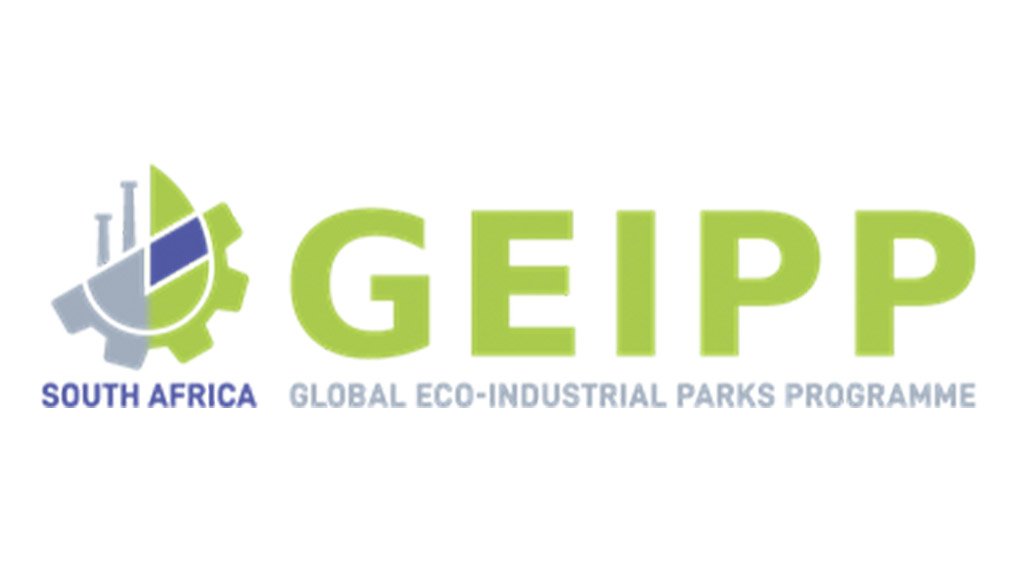

The DTIC, international partners launch project to drive green industrial revitalization in South Africa
The Department of Trade, Industry and Competition (the dtic) and the National Cleaner Production Centre South Africa (NCPC-SA), in partnership with the United Nations Industrial Development Organisation (UNIDO), launched the Global Eco-Industrial Parks Programme (GEIPP) in South Africa on Monday, 7 December 2020.
South Africa is one of seven countries selected to participate in the GEIPP, which is funded by the Swiss State Secretariat for Economic Affairs (SECO) and implemented internationally by UNIDO. The programme will be implemented in South Africa by the NCPC-SA, itself a programme of the dtic hosted by the CSIR.
The GEIPP aims to demonstrate the viability and benefits of “greening” industrial parks by improving resource productivity and economic, environmental and social performances of businesses, thereby contributing to inclusive and sustainable industrial development.
The launch of the programme took place at a virtual ceremony attended by the dtic Deputy Director-General, Sipho Zikode who opened the session by expressing his excitement for the GEIPP, a programme that will strengthen existing government efforts to revitalise the industrial infrastructure of economic zones and industrial parks.
The Ambassador of Switzerland to South Africa H.E. Dr Nicolas Brühl commended South Africa’s efforts thus far to support industrial growth through the development of industrial parks and special economic zones. “We are pleased with the launch of the programme in South Africa. It will further improve economic and social performance and competitive advantage of industrial parks, which will contribute to strengthening economic development.”
The Ambassador said that the GEIPP is important and is funded by his government because challenges such as pollution, water shortages and climate change are hampering current and future potential to achieve sustainable development. “Hence there is a need to move from the business as usual approach and eco-industrial park development has emerged as a central practice for more sustainable and resilient industry.”
According to UNIDO Representative and Head of UNIDO’s Regional Office for Southern Africa, Khaled El Mekwad, UNIDO believes that eco-industrial park practices are a key way to scale up resource efficiency and sustainability. “Such practices mainstream this approach within companies and industrial clusters and positively influence the surrounding communities, being a concrete example of inclusive and sustainable industrial development (ISID), in line with the SDGs and the Development Agenda 2030,” he said.
GEIPP background
The programme is funded by the Swiss State Secretariat for Economic Affairs (SECO) and implemented internationally by UNIDO.
The first UNIDO Eco-Industrial Park Pilot Project was implemented in 2010 in India and Tunisia. The current phase of the international programme runs until 2023. Other countries included in the current phase include Egypt, Colombia, Peru, Indonesia, Ukraine and Vietnam.
South Africa was chosen to host the programme as the concept of eco-industrial parks strongly supports the Industrial Park Revitalisation Programme (IPRP) of the dtic. The NCPC-SA will be the national implementer of the three-year programme, following a successful pilot project in 2018-19.
The programme has two main outputs for 2023. The first is to see the EIP concept incentivized and mainstreamed in relevant policy and regulations, including capacitating relevant institutions to drive such policies.
The second, larger output is to drive the implementation of EIP practices in selected industrial parks. The NCPC-SA project will focus on three government-owned industrial parks – East London Industrial Development Zone, Phuthaditjhaba Industrial Park and Ekandustria.
The NCPC-SA, supported by UNIDO and using the UNIDO EIP toolkits, will work with park management and tenant companies in the parks to assess and drive improved resource use and other EIP principles. More about the EIP approach is summarised below.
For South African parks, the free toolkits have been made available on the NCPC-SA’s resources site, at https://www.industrialefficiency.co.za/eip-toolbox/
What is an eco-industrial park?
According to the UNIDO website, “An eco-industrial park can be defined as a community of manufacturing and service businesses located together on a common property. Member businesses seek enhanced environmental, economic, and social performance through collaboration in managing environmental and resource issues. By working together, the community of businesses seeks a collective benefit that is greater than the sum of individual benefits each company would realize by only optimizing its individual performance.”
EIPs have been developed around the world, guided by the International EIP Framework. Key for a successful EIP lies in a well-functioning park with appropriate infrastructure and services enabling the tenant companies to concentrate on their key competencies and products
The key components of an eco-industrial park are:
- Park management,
- Resource efficient and cleaner production,
- Industrial and infrastructure synergies,
- Healthy and integrated work force, industry-urban synergies, and
- Spatial planning and zoning.
Reductions in the environmental footprint at tenant company level can be found, assessed and implemented through Resource Efficient Cleaner Production (RECP) processes. In addition to finding internal company improvements the RECP work identifies entry points for industrial and infrastructure synergies. Some energy or material side-streams and by-products identified and quantified in the process can be utilized by neighbouring companies creating industrial synergies. Alternatively, infrastructure synergies can be created through sharing input or effluent treatment infrastructure. This approach also provides opportunities for new business enterprises (especially SMME’s) and value chains that can benefit both industry and the local community.
An EIP has structures in place to ensure the safety and comfort of the workforce in the park. This extends to physical service infrastructure and well as ensuring that appropriate freedoms and grievance resolution mechanisms are in place for the employees. An EIP further keeps good relationships with the surrounding community by dialogue and sharing information, and seeks to develop joint infrastructure utilization and services for mutual benefit.
Developing a safe, resilient and business positive atmosphere is key to EIPs. This can be promoted by spatial planning and zoning through EIP concept planning and its translation to park master plans. This work is extended to assessing key risks, including climate change risks and resource availability, enabling a long-term success of the industrial park as key part of the community.
The EIP approach is flexible and can be applied to parks of all sizes, both private and publically owned.






